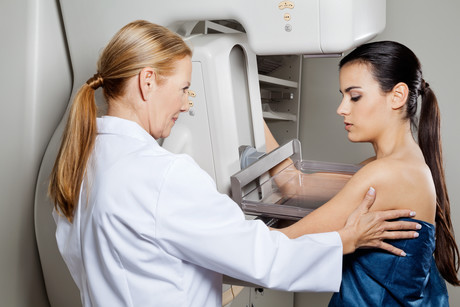Cancer Australia releases 'stage at diagnosis' data

Cancer Australia has released new data on ‘stage at diagnosis’ — the extent to which a cancer has spread at diagnosis — marking a significant advance in the reporting of national cancer information.
In Australia, one person is diagnosed with cancer every four minutes, with an estimated 138,000 new cases in 2018. The top five incidence cancers — female breast cancer, colorectal cancer, lung cancer, prostate cancer and melanoma — contribute about six out of 10 of these cases.
The new data is the result of a collaboration between Cancer Australia with all state and territory population-based cancer registries and the Australian Institute of Health and Welfare. It reveals that the majority of cancer cases for female breast (77%), prostate (82%) and melanoma (92%) were diagnosed as early stage, compared to colorectal (46%) and lung cancer (18%).
The data also shows some variations in the cancer stage at diagnosis by population group. Aboriginal and Torres Strait Islander peoples tended to have lower proportions of stage 1 cancer for female breast, colorectal and prostate cancer and higher proportions of advanced cancers than non-Indigenous Australians.
Cancer Australia CEO Dr Helen Zorbas said the release of the new data has opened the door to insights that could inform and shape our approach to cancer control strategies.
“Over past decades, cancer control in Australia has been informed by high-quality cancer data, due in part to mandatory reporting of cancer incidence,” Dr Zorbas said. “However, what has been missing from the picture is the availability of national data on the stage at diagnosis.
“The landmark data reveals the extent and spread of these cancers at diagnosis across four stages of severity — with stage 1 being localised disease and stage 4 being metastatic or more widely spread disease.
“The data will help us explore the relationship between cancer stage at diagnosis and survival outcomes, and the role of public health initiatives, early detection and awareness campaigns. This marks a major leap forward.
“Ultimately, the collection of stage data will enable us to understand the association between stage at diagnosis, treatments and outcomes, and to better understand differences in these aspects for different sociodemographic groups.”
Australia is among the first countries worldwide to report population-level data of a high quality on stage of cancer at diagnosis. It shows that Australia had a comparable or higher proportion of early-stage cancers for most cancer types compared to England and Canada.
The data can be filtered by tumour type and category, such as sex, age, Indigenous status, remoteness of residence and socioeconomic status. It can be accessed on Cancer Australia’s National Cancer Control Indicators (NCCI) website: http://ncci.canceraustralia.gov.au.
Retinal health linked to dementia risk, study shows
Researchers have discovered that the blood vessels at the back of the eye — called retinal...
Pancreatic cancer hijacks metabolism switch to help it spread
Pancreatic cancer hijacks a molecule known for regulating physiological processes, such as food...
Novel antibiotic activates 'suicide' mechanism in superbug
Researchers have discovered a new class of antibiotic that selectively targets Neisseria...




